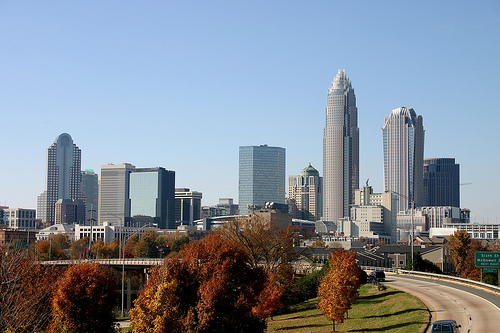
The United Methodist Church’s 2024 General Conference has voted to restructure the worldwide United Methodist Church (UMC) into four
regional conferences. The General Conference, which is meeting April 23 – May 3 in Charlotte, N.C., is the principal legislative body of the church. It generally convenes every four years.
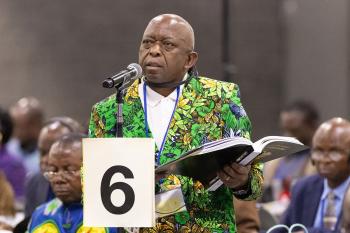
The Rev. Guy Nyembo of the North Katanga Conference speaks during the United Methodist General Conference in Charlotte, N.C. Photo by Mike DuBose, UM News.
Delegates to the General Conference voted on Monday to amend the church’s constitution and create the four regional conferences, e.g., the U.S., Africa, Europe and the Philippines.
Each region will have the ability to modify church rules to better suit the particular region’s culture and local situation. Seventy-eight percent of the delegates voted to approve the plan, the church said. A two-thirds majority was needed.
The regions, which will be called annual conferences, will vote on the restructuring plan between now and the end of 2025. If they approve it, each region may adapt some parts of the UMC’s Book of Discipline for their area. Africa, Europe and the Philippines have already done so to a certain extent.
The Book of Discipline lays out The Mission and Ministry of the Church, The Local Church, Social Principles, What We Believe and other
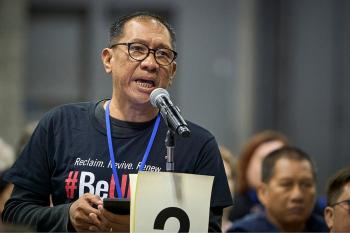
church doctrines and documents.
“This will address the predicament of many churches who were into disaffiliation from the UMC since most of our congregations are very conservative,” said Lucille Grace Hilario, a lay delegate from the Middle Philippines Conference.
The Rev. Jonathan Ulanday, who also is a Filipino delegate, called worldwide regionalization the “Kairos moment of equity, contextual ministry and simultaneously dismantling the vestiges of colonialism” in UMC’s structure. “Kairos” means “a time when conditions are right for crucial action.”
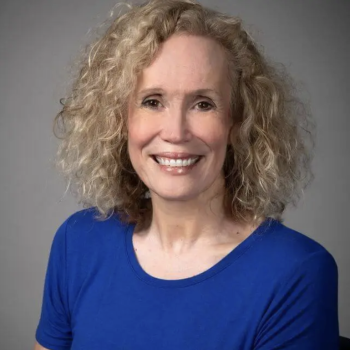
UMC attempted to regionalize the denomination’s structure in 2008. The General Conference voted in favor of restructuring, but the proposed plan failed when the regional conferences did not approve it by the necessary two-thirds majority.
The Rev. Dee Stickley-Miner, executive director of missional engagement for the General Board of Global Ministries, said the measures are more clearly written this year and have been vetted by Methodists in the various regions.
Upcoming Votes on Gender Rights
In addition to voting to restructure the church, delegates held a preliminary vote on the first batch, or group, of Revised Social Principles. The batch, which was approved, includes support “for the equal rights, liberties, and protections of all people regardless of sexual orientation or gender identity.”
If passed by the full General Conference, the Revised Social Principles will be the first “wholesale revision” since 1972, according to
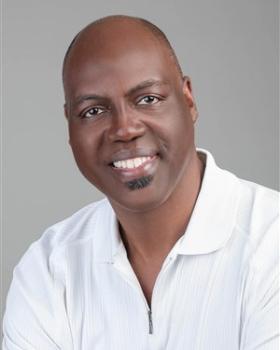
Randall Miller, vice president of the UMC General Board of Church and Society. The General Board of Church and Society is one of 13 UMC general agencies that oversees several global ministries.
A committee vote in favor of lifting LGBTQ+ bans “marks the first time that the denomination is calling for human rights no matter a person’s gender identity…. people should be treated with basic human dignity regardless of whether they are male, female, intersexual, transgender, or nonbinary,” the church said.
United Methodists have long debated the bans on ordaining LGBTQ+ clergy and allowing UMC clergy to perform same-sex weddings. To learn more about past debates, see my article on Patheos, “Methodists Have Reached a Crossroads — Again.”
If the full conference approves the Proposed Revised Social Principles later this week, the church is expected to remove language that condemns homosexuality as incompatible with Christian teaching.
On Tuesday, UMC delegates voted without debate to reverse several anti-LGBTQ+ policies. The vote was 667-54 in favor of removing penalties for performing same-sex weddings and allowing LGBTQ+ candidates for the clergy. Funding for gay-friendly ministries was approved.
Delegates also are expected to vote on a long-time rule that bans the ordination of “self-avowed practicing homosexuals.”
Less Money, Fewer Bishops
The 2024 General Conference also is making decisions about bishops and budgets, UMC said. Approximately one-fourth of United Methodist churches left UMC in recent years, and the number of U.S. bishops is expected to decline, as well.
The church is rapidly growing in Africa, however, and the General Conference has decided to increase the number of African bishops from 13 to 15. An earlier proposal sought to add five new bishops in Africa, but budget concerns kept the total at 15 rather than 18.
“Core to the dispute was the ratio of funding from churches in the African continent versus that of the U.S.,” according to a story in today’s Nashville Tennessean. “United Methodist congregations outside the U.S. have more members but typically contribute less funding to the denomination’s budget than the U.S.-based church.”
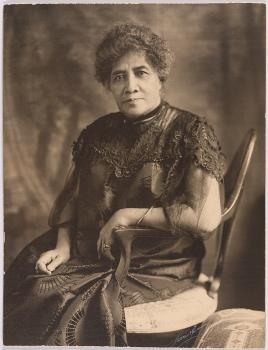
Liliuokalani, gelatin silver print by Harris & Ewing Studio, Object Number NPG.84.250, National Portrait Gallery, Smithsonian Institution.jpg
In other business, delegates to the General Conference voted to amend the UMC Book of Resolutions to include an “Apology for Illegal Overthrow of Hawaiian Kingdom.”
The resolution specifically named the Rev. Harcourt Peck, pastor of the First Methodist Episcopal Church in Hawaii in the late 19th century. Prior to pastoring the church, Rev. Peck was a member of the U.S. military, which dethroned Queen Lili’uokalani in 1893.
The General Conference issued a formal apology for the role the church played in the incident. It also asked the bishop of UMC’s California-Pacific Annual Conference to appoint a task force to study meaningful ways to implement the apology.
And Finally, A Tragedy in Charlotte
While the UMC General Conference met in Charlotte on Monday, another story was unfolding a short distance away. Four law enforcement officers were killed and four others were wounded in a shooting that occurred about 20 minutes from the General Conference’s location, CNN reported this morning. The injured officers are in stable condition at a local hospital.
A US Marshals fugitive task force was attempting to serve a warrant against a convicted felon for possessing a firearm when the suspect fired at the officers with a high-powered rifle. The officers, who included Charlotte-Mecklenburg police, returned fire and killed the suspect.
Ironically, delegates to UMC’s General Conference had passed a resolution earlier on Monday reaffirming the church’s determination to combat gun violence.


